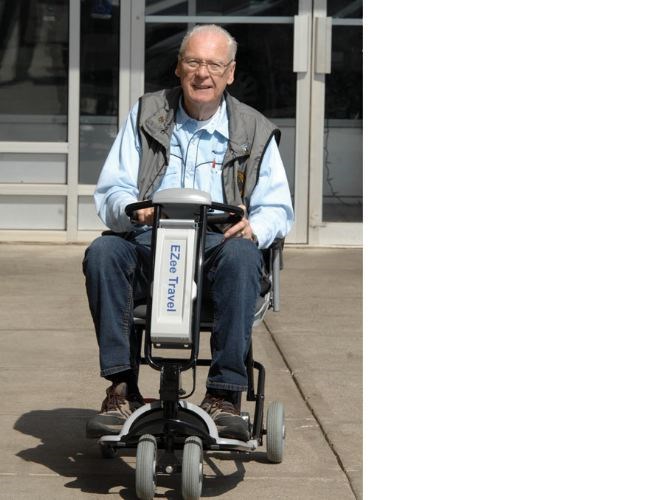Most people would agree rigorous exercise will improve your health. Not so for those afflicted with post polio syndrome, most commonly an aftermath illness suffered by people who had polio as teens or young adults.
Larry Anderson, 75, who is dealing with the syndrome, holds support group meetings every other month in the Kiwanis building in downtown Prince George.
Anderson got polio when he was 15. He had flu-like symptoms and when the doctor made a house call, as they tended to do in those days, it was suspected he had polio.
He spent three months flat on his back in Vancouver General's children's division and recovered slowly, using a wheelchair and crutches during his recovery. His right leg was smaller than the other but he recovered to enjoy a healthy active life, until he was 60.
It started with fatigue that couldn't be relieved by rest, followed by increased weakness in his muscles to the point where he would drop things because he just did not have the strength to hold onto them. Anderson is also now hypersensitive to pain and has an intolerance to cold. Typically his home thermostat is set to 24 degrees.
When he went to the doctor, Anderson said he was lucky his doctor knew about post polio syndrome and was able to address these issues with him.
Anderson gets a newsletter from the Post Polio Awareness & Support Society of
British Columbia that keeps him informed of all the latest developments, which is important as he goes from a cane to a walker and now uses an electric scooter for longer distances.
"When I joined the support group and read the reports I realized it was typical," said Anderson, who thought he suffered from some other ailment completely unrelated to polio.
"What causes it is the nerve sensors are connected by neurons. There are millions of them in your body. When you got polio, on average about 50 per cent of those neurons died, the rest were damaged. When you started to get better, the neurons would grow stronger to make up for the loss of the ones that died. When you got better from the polio, doctors would say you had to build up your strength."
The neurons, now being overworked, were dying much faster than normal neurons, which die slowly as we age.
"How post polio syndrome was discovered was back in 1986 or 1987 people that had polio would complain of symptoms that I had," said Anderson. "There was a medical group that took two women with similar symptoms to mine and they put them on a very strict exercise program to prove that exercise could improve their health and within six weeks their health had deteriorated so much they were both placed in an iron lung apparatus. Then the medical profession thought there was more to this post polio syndrome that what they thought."
Extensive testing was done and a set of rules was created about how to look after a post polio syndrome body. The Post Polio Awareness & Support Society of B.C. call it the ten commandments of post polio syndrome.
"It's a fine balance to keep yourself mobile without overworking the neurons because if you overwork the neurons it causes permanent damage," said Anderson. "If I overdo it, it can take me three days to recover."
Anderson does stretching exercises to help improve his mobility.
"I use my cane, I use my walker and my scooter," said Anderson. "I am not ashamed to use them because that allows me to keep going."
For more information or details about the free meetings, call Anderson 250-962-7327.
For more information about post polio syndrome visit www.ppassbc.com.



